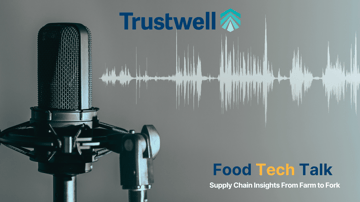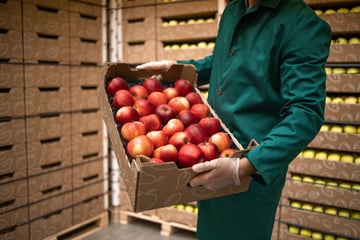 The FDA’s decision to delay FSMA 204 compliance by 30 months is a noteworthy development. While this extended timeline may offer temporary relief for companies still navigating traceability challenges, it does not diminish the urgency of what’s at stake.
The FDA’s decision to delay FSMA 204 compliance by 30 months is a noteworthy development. While this extended timeline may offer temporary relief for companies still navigating traceability challenges, it does not diminish the urgency of what’s at stake.
The issues that prompted FSMA 204—rising foodborne illness, recalls, and supply chain disruptions—remain pressing concerns. If anything, these challenges are intensifying. Although the compliance deadline has shifted from 2026 to 2028, the need for action remains unchanged.
At Trustwell, we work daily with food companies committed to meeting consumer expectations, protecting public health, and strengthening supplier relationships. Our position is clear: food safety cannot wait, and traceability is essential.
The FSMA 204 Compliance Delay Won’t Eliminate Risk
FSMA 204’s Final Traceability Rule aims to enhance the industry’s ability to achieve real-time visibility and rapid response when food safety issues arise. That goal hasn't changed. While the delay may feel like a victory for those concerned about the complexities of aligning a diverse, global supply chain, postponing action only prolongs the challenges and increases the risk of larger, costlier recalls.
Digital Download: The Ultimate Guide to FSMA 204 Compliance
Waiting 30 more months won’t make traceability simpler. It only delays the necessary investment in systems and processes designed to protect consumers, uphold brand integrity, and maintain profitability. The longer companies wait, the harder and more disruptive the eventual transition will be.
Taking a proactive approach, rather than pursuing reactive compliance, is the only way to effectively mitigate risk.
Retailers and Consumers Aren’t Hitting Pause
The companies leading in the food industry — major grocers, quick-service restaurant chains, and leading CPG brands — aren't waiting for 2028. They're already prioritizing traceability, recognizing it as a strategic advantage and actively leveraging it to:
- Optimize Inventory: Minimize waste and maintain optimal stock levels, saving costs
- Strengthen Supplier Relationships: Improve collaboration and accountability with shared data
- Respond to Recalls Faster: Quickly isolate affected products, minimizing impact
- Meet Consumer Demand for Transparency: Provide detailed sourcing information to consumers
- Collect Consumer Insights: Understand preferences and purchasing patterns
Meanwhile, consumers are increasingly aware of food safety issues, heightened by high-profile outbreaks and viral social media coverage. Transparency is no longer optional; it’s an expectation that directly influences purchasing decisions.
Companies that provide clear, accurate traceability will build trust and loyalty that others cannot. The compliance delay doesn’t change the underlying market forces. If anything, it offers proactive companies a greater opportunity to establish leadership.
The FSMA 204 Compliance Delay is an Opportunity to Lead the Food Industry
The intended extended FSMA 204 compliance timeline presents food companies with a choice. Organizations can either use this time to delay progress or to lead the industry forward. Companies that invest in digital traceability now will set new standards for compliance, quality, transparency, and customer loyalty.
Listen Up: Traceability & Consumer Trust: Kroger's Approach to FSMA 204
At Trustwell, we know that traceability isn’t just about passing audits. It’s about building a more resilient, responsive, and trustworthy food system. It's about gaining better insights into their supply chains, efficient operations, reducing waste, and building stronger relationships with both suppliers and consumers.
Implementing traceability takes time. It requires cross-functional coordination, system integration, and stakeholder buy-in. The businesses that start now will be ready — for FSMA 204 and for the next wave of food safety expectations. Trustwell supports that readiness with purpose-built technology and a dedicated team of experts who understand the complexities of food production and distribution. We’re here to help you lead.
Let's move forward, together.
Other posts you might be interested in
View All Posts
FSMA
6 min read
| April 18, 2025
Why International Food Exporters Can’t Afford to Delay FSMA 204 Compliance
Read More
Food Industry
6 min read
| August 28, 2024
Kroger’s Approach to FSMA 204 with Catherine Cosby
Read More
Food Industry
7 min read
| December 6, 2022


